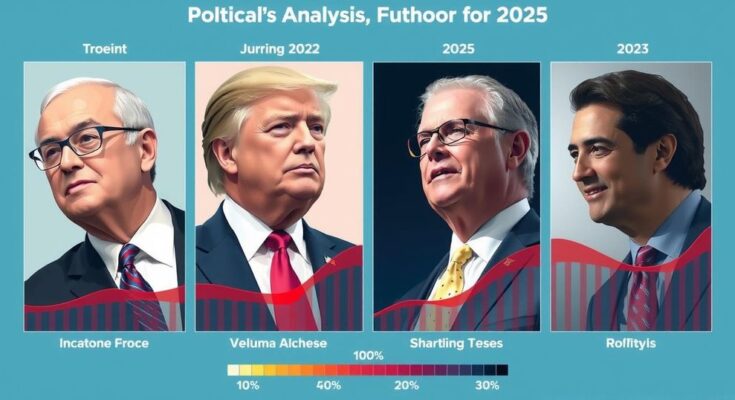The year 2024 marked unprecedented electoral losses for incumbents globally, largely driven by inflation and shifting voter behaviors. Wealthy democracies are experiencing increased volatility, resembling that of emerging markets. Upcoming 2025 elections will continue to test incumbents as voters demand responsive governance amidst cultural shifts in political loyalty.
The year 2024, described as “the year of democracy,” may ultimately be remembered for the unprecedented losses suffered by incumbents in electoral contests globally. According to a Financial Times analysis, every governing party in developed nations faced a reduction in vote share, marking the worst year for incumbents in recorded history. This shift signifies a transition from the once-reliable incumbency advantage to a rising trend of voter dissatisfaction that favors opposition parties. In the U.S., the dynamics of this shift played out with Vice President Kamala Harris, whose alignment with President Joe Biden’s policies did little to bolster her standing amidst growing discontent.
Historically, holding office in wealthy democracies guaranteed re-election, but recent trends indicate increasing volatility in these political landscapes, likening them to the more dynamic environments seen in poorer democracies. Ben Ansell, a professor at the University of Oxford, noted this shift, suggesting that the burden of incumbency is now felt acutely in wealthier nations as well.
A principal factor contributing to this trend appears to be rampant inflation, which surged following the COVID-19 pandemic and geopolitical tensions such as the war in Ukraine. This economic strain has led to significant voter backlash against incumbent governments, reminiscent of the consequences faced during the 2008 financial crisis, where unemployment hurt governments, but inflation spelled doom for them. The potential for recovering electorates hinges on inflation stabilizing and government responses adapting effectively to public grievances regarding rising costs.
Cultural shifts also play a crucial role in this evolving landscape, as generational tendencies indicate reduced partisan loyalty and greater electoral volatility. Roberto Foa of the University of Cambridge articulated that increased voter willingness to switch allegiances complicates the political terrain for incumbent leaders. This consumer-like behavior among voters suggests a desire for more tailored governance instead of traditional, static party offerings.
Looking ahead to 2025, it appears that many incumbents may continue to struggle, with critical elections on the horizon in countries such as Germany, Canada, and Australia. The challenges include significant polling shifts and accusations of electoral interference, particularly in Eastern Europe. Interestingly, Latin America may present a contrasting narrative, where some incumbents might find themselves better positioned against challengers.
Ultimately, a continuing pattern of electoral losses raises vital questions about the health of democratic systems. Political scientist Adam Przeworski asserts the significance of electoral consequences, indicating that democracy requires both punitive and rewarding mechanisms for government officials. Without balancing these forces, the electoral process risks devolving into chaotic outcomes that could disenfranchise both leaders and constituents.
The article primarily discusses the increasing difficulties faced by political incumbents in Western democracies during the electoral year of 2024, contrasting this with previous norms where incumbents had a significant electoral advantage. It addresses how various factors such as economic pressures from inflation and shifts in voter behavior toward greater volatility and less partisan loyalty are reshaping political landscapes. The dynamics of political elections and how they impact governance are examined through expert opinions and historical data, depicting a possible trend towards instability in established democracies.
The article delineates a critical juncture for incumbents in advanced democracies who have encountered unprecedented electoral challenges in 2024. This situation suggests that, unless addressed, the structural and cultural factors leading to these trends may cause further volatility in upcoming elections. Political systems must evolve to maintain voter engagement and trust, ensuring that elections serve not only as a punitive measure but as a means to reward effective governance.
Original Source: www.cnn.com




